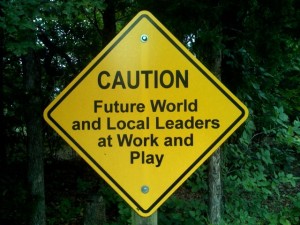Applying the Dale Carnegie Principles to Build a Reliability Culture
Building on the Dale Carnegie® Principles from the famous book, How to Win friends and Influence People, we can progress to the final set of principles.
Using his key principles as a guide, we can bring about change within our organization. In the first post, we covered how to build authentic and meaningful relationships. In the second post we covered how to win people to your way of thinking. In this last post, we will cover what it means to be a leader. If you haven’t read the previous posts, I strongly suggest that you do, as they build on each other.
So far you have built relationships, influenced people, and now you have earned the right to be a leader. Being a leader does not just come with a title, we can lead from the top, bottom, front or back. Dale Carnegie taught us that leaders have to earn that right, and leaders must maintain that right.
I remember preparing for an external audit on our maintenance & reliability program. Our team was headed up by a Director and included myself (a planner at the time), a maintenance supervisor, and select group of craft and a few operations people. The Director was ultimately accountable for the program and the outcome of the audit.
During the course of the audit, the various functions within the department were asked to explain what they did, how they did it, etc. At the conclusion of the audit, we were delivered our results. We were successful in the outcome and were quite excited.
The auditor than made a statement that surprised only me. Everyone else in the room knew what he did but I did not. The auditor said that the change in the department was quite amazing and the engagement by the craft and operations staff was a step change from what he had previously seen. He stated that the change was brought about by an individual and that individual was me.
Using the principles below and the foundations laid by the other principles, I became a leader without even knowing it. Following the principles outlined below, you can become a leader too.
- Begin with praise and honest appreciation. Leaders know what is going on in their department and operation. Give appreciation and do so with specifics.
- Call attention to people’s mistakes indirectly. Ask questions to lead them to the right answers. Never call anyone out in a group setting.
- Talk about your own mistakes before criticizing the other person. When providing feedback, refer back to your own learnings and how the same mistake was made and learned from.
- Ask questions instead of giving direct orders. People will own what they develop. Let them develop the solutions.
- Let the other person save face. Allow a person to express their opinion and address them in private after. Never center them out.
- Praise the slightest improvement and praise every improvement. Be “hearty in your approbation and lavish in your praise.” When working to develop new skills or implementing a change, praise every improvement you see. This will build confidence and the skill or change.
- Give the other person a fine reputation to live up to. Tell the person how highly you think of them, their knowledge or skills. They will be most likely to maintain that level of performance.
- Use encouragement. Make the fault seem easy to correct. Everything can be overcome. Help your staff to see that the improvements can be made.
- Make the other person happy about doing the thing you suggest. This can be achieved by making them the owner of it, or allowing them to develop the solution.
Which of the principles do you struggle with? Pick the two you struggle with the most and apply yourself. Focus on applying the principles over the course of the week. Write the principles on Post-Its and put them on your computer, the fridge, the coffee maker, and apply them for a week. Let us know if you observed any changes in your Reliability Culture.
Continue to apply all of these principles in your daily routine. Make the commitment to build your Reliability Culture, using the tried and true principles that have stood the test of time.
For further information on these principles and influencing people, please read the book that made this all possible, How to Win friends and Influence People.
Remember, to find success, you must first solve the problem, then achieve the implementation of the solution, and finally sustain winning results.
I’m James Kovacevic
Eruditio, LLC
Where Education Meets Application
Follow @EruditioLLC
Disclosure of Material Connection: Some of the links in the post above are “affiliate links.” This means if you click on the link and purchase the item, I will receive an affiliate commission. Regardless, I only recommend products or services I use personally and believe will add value to my readers. I am disclosing this accordance with the Federal Trade Commission’s 16 CFR, Part 255: “Guides Concerning the Use of Endorsements and Testimonials in Advertising.”




